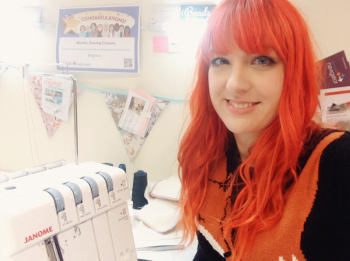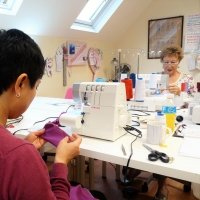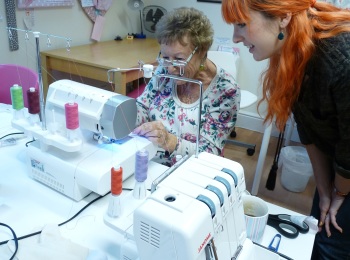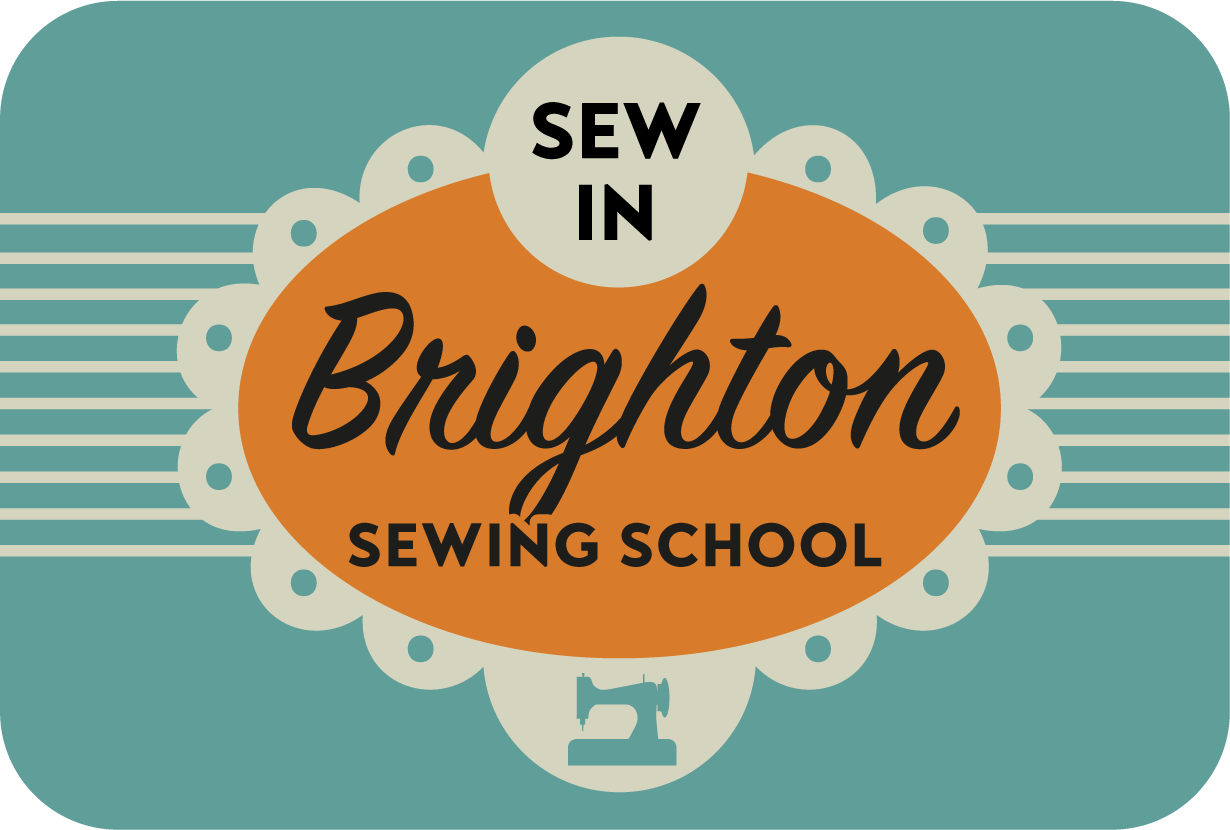Garment Alterations & Overlocking: Interview with Carrie White
Posted on
We interview our Overlocking and Alterations teacher, professional machinist Carrie White...
 |
 |
 |
How did you get into sewing for a living, how long have you been doing it?
I've been sewing for about 15 years and doing it professionally for around 6 years. It took quite some time for me to realise I could do it for a living. I was working in an office and making things in my spare time, and at some point I figured out that I was happier sewing than I was at my job. I studied Costume Production at a theatre school in London and when I left I decided to go into the wedding dress industry. I contacted various bridal shops in my area, got some experience with them and have been making and altering dresses ever since.
What do you do in your sewing jobs? What sort of garment alterations do you do in your usual working week?
The main bulk of my work is altering dresses, all sorts of dresses! Cotton, chiffon, jersey, velvet, silk, I've altered them all. Every now and again I'll make a dress but I like the quick turn around with alterations. The most common alteration is taking up hems - ladies come in all different heights and prefer all different shoe heights too so about 75% of all long dresses will need shortening. The next most common alteration is lifting the shoulders, this can make such a difference to the fit of a dress but is not always the most obvious change to make.
How do you use overlockers in your job?
I use an overlocker almost everyday. They are perfect for whizzing round the hem of a dress before you turn it up on the sewing machine. I also often need to re-overlock the insides of dresses if I've had to take them in for example.
Do you make your own clothes?
I actually don't make my own clothes. I've made lots of costumes for myself but I much prefer making things for others.
Are garment alterations easy to do? What do I need to know? Do I need to have made clothes before?
It really depends on the garment you're trying to alter. Some clothes are made so that they can be altered such as wedding and bridesmaid dresses. But others are not so easy, you can do a lot of damage while unpicking stitches and you could potentially ruin a garment this way. When I'm altering something my main goal is to put it back together so that it doesn't look like it's been altered. This might seem obvious but it can be tricky. You need to consider the colour of the thread, the placement of seam allowance, lining up your stitching with the original sewing line etc. I would definitely recommend that you be able to make clothes before attempting alterations. You don't need to be an expert but a general understanding of how garments go together will help you to work out the best way to alter something. A great tip is to simply turn your clothes inside out and look at how they've been made, I've learned so much this way.
What are the advantages of having an overlocker rather than just having a normal sewing machine?
An overlocker is essential if you want to make your garments look professional and also last longer. Overlocking the seam allowance can tidy up uneven cutting, stop fabrics from fraying and add strength to prevent seams tearing or falling apart. While sewing machines can have an "overlock stitch", the results never look as nice as a real overlock. The other advantage of having an overlocker is the ability to make clothes from stretch fabrics such as jersey. The overlocker is designed so that that the overlocking retains the stretch and you'll find that most stretch clothing such as leggings and t-shirts will be sewn together using an overlocker rather than a sewing machine.
Can you make entire garments, completely on an overlocker?
It is possible to make an entire garment solely on an overlocker but it depends on how you want to finish it. Certain hems can only be done on a sewing machine or cover stitch machine, and you may want to top stitch parts of your garment.
What do students get out of your LYO workshops?
Many of the students I've seen arrive with their overlockers brand new in their boxes completely daunted by the prospect of using it, or have tried to use it and have come across a problem they've been unable to solve. In the workshop I aim to make people feel comfortable with the machine, to help them understand what all those dials and numbers mean, and to inspire them to leave at the end of the day with lots of new ideas and possibilities. They leave feeling confident and no longer afraid of the noisy, fast machine!
What do you enjoy about teaching?
I like seeing the change in people as they progress through the class. Whether they're opening up to the other students and chatting about their projects and ideas or they're feeling more and more at ease with their machine, feeling proud when they achieve the perfect overlocking or figure something out that they couldn't before. Everyone arrives feeling unsure and in need of a cup of tea but leave with smiles on their faces and full of ideas.
Learn more about overlocking or alterations in one of Carrie's upcoming workshops at Sew In Brighton:
Love Your Overlocker (or ours!)
Overlocking with Jersey & Knit
Hobby to Professional: Clothing Alterations
or in a private 1-2-1 lesson with Carrie on any subject above
